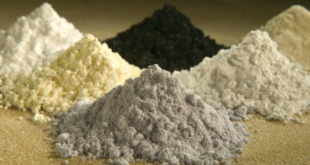Following the notorious coup in Ukraine in 2014, supported by the USA and some allies, which ousted a democratically elected government, a number of very important changes took places in policies. The political aspects of these policy changes have been better known even though largely ignored in the big media discourse. These include pressures from those who facilitated the coup to have a permanently anti-Russia policy, to be aggressive all the time towards Russian speaking citizens of Ukraine, to strengthen neo-Nazi forces to facilitate their attacks on Russian language speaking citizens of Ukraine, resulting in about 14,000 deaths—all these together adding up to a policy that was bound to lead to a conflict situation, even though peaceful co-existence and cooperation was definitely possible and highly preferable from the point of view of the welfare of the people of both countries.
However the changes in economic policies were also very important but are even less known and acknowledged. Ukraine became more indebted (with the third highest debt in the world to the IMF) and had to face structural adjustment policies imposed by the IMF and other international financial institutions. As in the case of most such structural adjustment programs, there was a lot of privatization leading to big gains to the already richest persons, including foreign interests, while at the same time heavy costs were imposed on ordinary people including workers and farmers. There was stagnation and decline of real wages while prices were rising. In particular there was heavy increase in the price of gas which is very important for people for heating and fuel. The elderly people depending on pensions were very badly affected. The poverty rate increased from 28% to 41% in 2019, although it even approached about 55% at one stage in between.
Far-reaching changes were initiated regarding land ownership and land relations so that land ownership pattern started becoming heavily concentrated in the hands of the super-rich. As Ukraine has a lot of fertile land capable of supplying Europe, attempts were being made earlier also by big agribusiness interests and super-rich oligarchs to grab some of this land or gain control over it. However before 2014 various governments also took steps to check such trends. After the 2014 coup, however, restrictions on land markets were increasingly removed in the name of new ‘land reforms’. While the term ‘land reforms’ has been generally used to indicate highly positive, equality-based changes of land relations in favor of the poor and the landless, in the present case the so-called ‘land reforms’ were pushed in the structural adjustment program with an entirely opposite intention and actual impact. The aim was to facilitate the passing over of vast areas of farmland into the hands of the richest oligarchs and even foreign interests. Even though some restrictions on foreign control may still remain formally, in practice this has not presented effective control passing into the hands of foreign interests based mainly in the USA, Europe and Saudi Arabia. Several of the oligarchs and foreign interests are also linked to tax havens (and may be registered there), making even taxation more difficult, while at the same time several of the oligarchs and agribusiness interests have borrowed from western banks and funds. West-based banks, pension and equity funds, various endowments and foundations have their money invested in such deals, and thus have a stake in the continuation of regressive land changes which take ownership and control from farmers and hand it over to big business.
A recent study titled ‘War and Theft’ by the Oakland Institute (USA), an institute known for its commitment to justice based farm growth and ecologically protective farming, has revealed that nearly 3 million hectares of arable land in Ukraine have passed into the hands of just about a dozen big controlling interests. Altogether about 9 million hectares has passed into the hands of oligarchs, corrupt individuals and big agribusiness. The other side of this grab is that less and less land is available for the ordinary farmers. If a big share of the cultivable land is to be taken by the super-rich then certainly the land available to the ordinary farmers is reduced significantly at a time when they need to earn more to cope with inflation and other adverse factors.
Despite adversities it is the small and medium farmers who contribute most of the food—99% of potatoes, 89% of vegetables and 78% of milk, according to figures quoted in the Oakland Institute report—and any adverse impact on them will be bad for food security too. The ongoing changes are bad for environment and climate too, as the industrial agriculture practiced by big business interests is much worse from the point of view of GHG emissions, while small farmers are much more conducive to adopting eco-friendly practices which makes for sustainable livelihoods that can help to check climate change as well.
The current trend in the structural changes program and west-backed policies is to go on promoting big business interests in Ukraine farming. While already the biggest single owner may have in excess of five hundred thousand hectares, the future plans for such big owners are to grab more and more land, helped also by the tendency of government farm development programs to favor them.
In addition the current Ukraine government is also wooing western, particularly USA oil and gas units to invest heavily in this sector in Ukraine, and this may become the other big area in which western oil and gas giants may have a big presence with high concessional terms being granted to them by the welcoming current ruling regime in Ukraine. Then of course there are the big construction companies that are waiting for their time, while the big defense contractors may want the war to go on and on.
In the middle of all this, the ordinary people of Ukraine, farmers and workers and middle class households, may well wonder whether their real interests are being prioritized at all. This is a question that must be increasingly raised by the people of Ukraine and by their sincere friends.
While peace is the biggest priority just now, questions and concerns remain about the impact of the heavy indebtedness of Ukraine and continuing impact of structural adjustment policies linked to this. To what extent will repayment be demanded later for the loans given to facilitate the proxy war which actually promotes the narrowly perceived interests of the USA/NATO? How big will loan and interest repayments amount to? How big and long term will be the terrible impacts of structural adjustment policies which make it difficult at the same time to take several pro-people steps? In these conditions will it at all be possible to adopt a community based reconstruction effort, or will the reconstruction effort be controlled by the big construction companies? These are some of the troubling questions which face the people of Ukraine on the economic front as well.
 Eurasia Press & News
Eurasia Press & News




